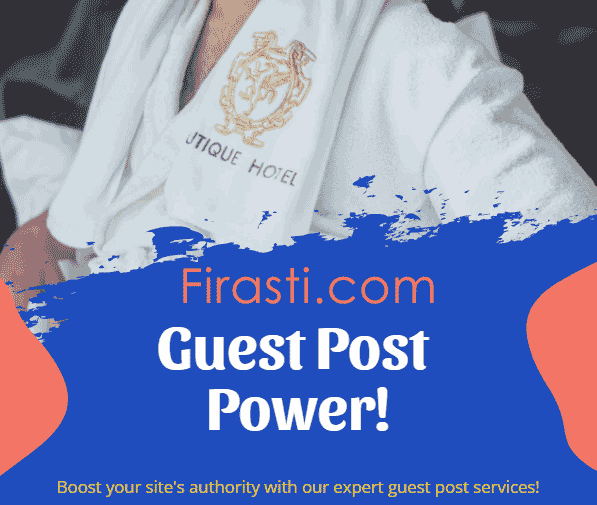How White Label PPC is Fueling Franchise and Multi Location Marketing Growth

Franchise and multi-location businesses—such as quick-serve restaurants, fitness chains, service providers, and retail outlets—face a unique conundrum: How do you deliver locally relevant advertising while maintaining brand consistency and efficiency at scale? Managing hundreds of Google Ads and Facebook campaigns across multiple markets can quickly become expensive, complex, and inefficient.
A powerful plug‑and‑play marketing solution. But what exactly are they, how do they work for franchises, and what real results can they deliver? Let’s explore.
1. What Are White Label PPC Services?
White Label PPC Services are pay-per-click (PPC) campaign management solutions offered by third-party experts, who work behind the scenes under another agency’s or franchise’s brand. The client sees only your logo and reports—never the actual provider.
The typical model:
- Agency or franchisor signs a contract with the white label provider.
- Provider builds, launches, manages, and reports on campaigns.
- Agency/franchisor delivers reports and manages client communication, under their brand.
This setup offers a “secret superpower” to grow PPC capabilities without hiring, training, or managing an internal marketing team.
2. Why White Label PPC is Ideal for Franchises
A. Scalability Without Staffing
Franchises with dozens to hundreds of locations often need many local campaigns. Scaling in-house means hiring, training, and retaining PPC talent—time-consuming and expensive.
White label providers already have the certified PPC staff, tools, and processes in place—enabling franchises to launch campaigns across multiple locations quickly and consistently .
B. Geo-Targeted Campaigns Done Right
Franchise marketing success depends on geographically targeted messaging:
- Granular targeting: tailored keyword sets and ad copy for each location.
- Local landing pages: including contact info, offers, hours, and customer reviews.
- Platform specialization: Google Search, Performance Max, Local Services Ads, Facebook, and Instagram—optimized to drive per-location results.
The result? Each store gets a local-level “mini-campaign” with consistent brand voice—bundled and managed centrally.
C. Cost-Efficiency
Hiring a full internal team for PPC can cost $50k–$80k/year per expert. White label providers:
- Leverage economies of scale across multiple clients.
- Offer tiered or flat‑rate pricing per account or by ad spend.
- Enable predictable forecasting and the ability to mark up profitably
D. Speed to Market
White label teams come equipped with systems—templates, SOPs, onboarding flows—cutting campaign setup from weeks to days. This swift market deployment is crucial for launching seasonal or promotional campaigns where timing matters.
E. Access to Advanced Expertise and Tools
White label partners specialize in PPC. They bring:
- Certified strategists and creative teams.
- Advanced tech stacks (bid automation, AI budget tools, tracking, white-label dashboards, reporting).
- Up-to-date knowledge – staying ahead of algorithm updates, PMax, first-party data, and GA4 .
For franchises aiming to optimize across multiple platforms, these resources deliver performance that internal teams may struggle to match.
3. Real-World Use Cases & Case Studies (≈500 words)
Omojet: Franchise PPC at Scale
Omojet built tailored multi-location campaigns for franchises, including:
- Localized keyword research
- Campaign build per city/location
- Custom landing pages and call tracking
- Cross-channel ads (Google, Meta)
- Dashboards + A/B testing
They’ve handled campaigns for hundreds of locations—including restaurants, home services, health clinics, retail franchises—driving foot traffic, leads, and revenue at scale
Advirtis: ROI-Driven Results
- Solar & roofing franchise: Achieved $15M ROI from $400k monthly ad spends.
- Eye care chain: Tripled conversions; CTR up 31%, CPL cut from $11 to $4.60.
- State university master’s program: program filled within a month, with 25+ leads under $600.
These success metrics illustrate how white-labeled PPC can powerfully scale across diverse sectors—especially those reliant on localized lead generation.
4. How to Choose the Right White Label Partner (≈400 words)
Choosing the right provider is critical:
1. Communication & Transparency
Look for seamless communication channels—preferably using your own brand domain. Monthly updates, access to dashboards, and real-time campaign data are essential
2. Pricing Structure
Common models include:
- Flat fee per account
- Ad spend percentage (e.g., 15%)
- Hybrid (fixed + ad spend)
- Results-based (often discouraged)
Choose the model that aligns with your business and budgeting needs. Agency-friendly structures (e.g., flat rate + scalable tiers) are often best .
3. Niche Expertise
Ensure the provider has experience in your industries—retail, hospitality, home services, fitness, etc.—and in franchise or multi-location PPC specifically .
4. Tools & Reporting
Demand:
- White-labeled dashboards.
- Siteless reporting (Google Ads, GA4, call tracking).
- AI/bid automation.
- Custom landing page and conversion tracking support
5. Reliability & Responsiveness
Reddit marketers consistently highlight the importance of real-time collaboration versus “set-it-and-forget-it” execution . Choose a team that treats you like a partner, not a ticket.
5. How to Integrate White Label PPC into Franchise Marketing
Step 1: Audit Existing Campaigns
- Analyze current campaign structure, messaging, spend, ROAS.
- White label providers often offer initial audits and funnel reviews.
Step 2: Define Structure & Goals
- Decide central vs local account structure.
- Assign budgets, geo boundaries, platforms.
- Define KPIs: leads, form fills, calls, transactions.
Step 3: Onboard & Setup
- Share brand guides, tone, offers.
- White label partner builds templates, sets up landing pages.
- Launch pilot in key markets before scaling to all locations.
Step 4: Reporting & Refinement
- Receive branded dashboards & monthly PDF reports.
- Review data; partner optimizes, A/B tests creatives, keywords.
- Discuss multi-channel integrations (e.g., retargeting MSAs via Facebook).
Step 5: Scale & Monitor
- Add new locations using the established blueprint.
- Implement geo-tiered budget adjustments.
- Run seasonal offers, promos, or Performance Max campaigns.
Step 6: Maintain Communication
- Set weekly or biweekly check-ins.
- Provide your client-facing updates—protect your brand and messaging.
6. Benefits for Franchisors & Marketing Partners
For Franchisors
- Brand consistency with local relevance.
- Standardized messaging, legal disclaimers, promotions across locations.
- Lowered operational burden—no need for massive adteams.
- Proven return metrics built into campaigns and local dashboards.
For Marketing Agencies (White Label Providers)
- Predictable recurring revenue with scalable campaigns and markups
- Back-end freedom: Able to focus on campaign management without handling client PoCs.
- Access to high-value franchise clients.
7. Common Pitfalls and How to Avoid Them (≈300 words)
Pitfall 1: Poor Communication
Delayed or generic responses from the white-label team damage your reputation. Avoid this with structured communication channels and SLAs
Pitfall 2: One-Size-Fits-All Campaigns
Local variations matter. Blanket campaigns ignore demographic, competitive, and performance differences. Choose partners who tailor per location .
Pitfall 3: Pricing Mismatch
A price model incompatible with your cost structure can undermine profitability. Work with partners who offer flexible and predictable pricing .
Pitfall 4: Lack of Control
You must own ad accounts and set budget permissions. Ensure white-label agreements give you access for oversight.
Pitfall 5: No Tech Integration
Tracking offline conversions (calls, store visits) is vital. Use providers who offer call tracking, offline conversion uploads, landing page integrations.
8. Emerging Trends in White Label PPC
AI & Automation
AI-powered bidding, cross-channel optimization, and predictive analytics drive 30–50% higher ROI
Privacy & First‑Party Data
With GDPR/CCPA constraints and cookie deprecation, strategies now lean heavily on first-party tracking, GA4, and consent-based modeling .
Platform Expansion
Beyond Google Search: Performance Max, LSAs, Meta ads, YouTube, and retargeting are all being integrated under white-label management
Conclusion
Franchise marketing success hinges on achieving local relevance at scale. White label PPC enables national brands to act like local businesses—on every corner—without sacrificing control or budget.
In an increasingly competitive landscape, where speed, personalization, and ROI matter more than ever, White Label PPC Services are proving to be the strategic lever that franchise marketers didn’t know they needed… until now.





